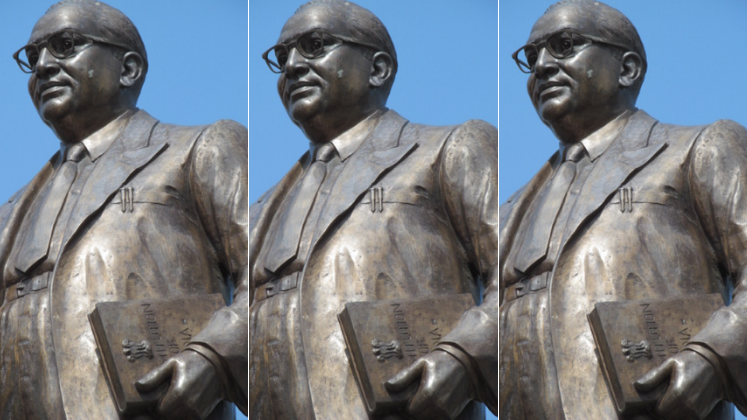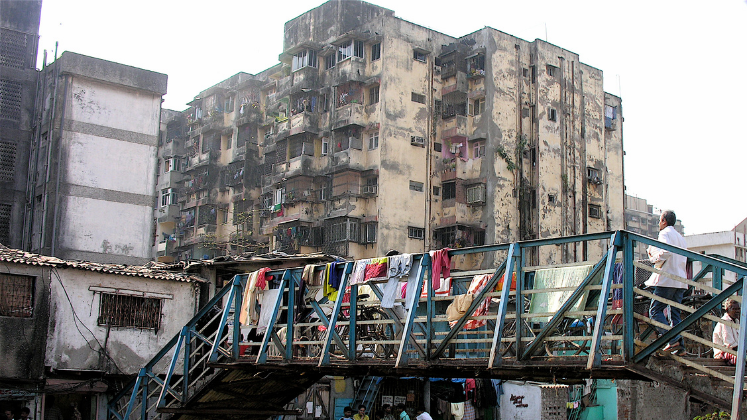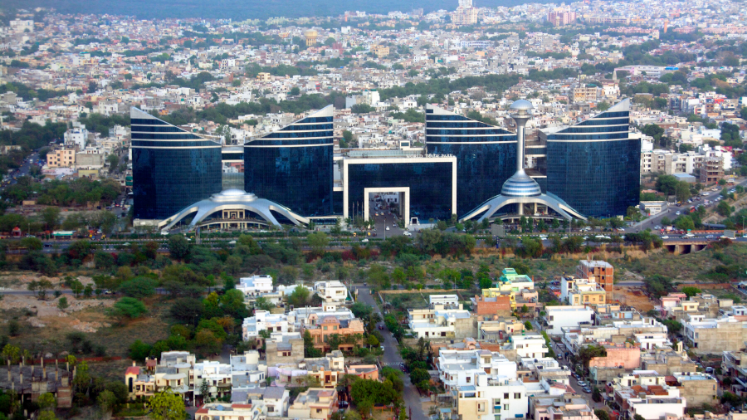We speak to Dr Mukulika Banerjee, Associate Professor in LSE Department of Anthropology, about her new book Cultivating Democracy: Politics and Citizenship in Agrarian India, which explores how agrarian life in rural India creates values of citizenship and active engagement that are essential for the cultivation of democracy.
Dr Mukulika Banerjee will also be reflecting on ‘The Future of Democracy’ with Professor Lea Ypi and Dr Yascha Mounk as part of the upcoming LSE Festival 2022, running from Monday 13 June to Saturday 18 June 2022.
Q&A with Dr Mukulika Banerjee on Cultivating Democracy: Politics and Citizenship in Agrarian India. Oxford University Press. 2021.
Find this book (affiliate link):![]()
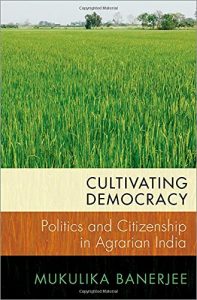 Q: What inspired your study of democracy in agrarian India and why did you choose to focus on the setting of West Bengal?
Q: What inspired your study of democracy in agrarian India and why did you choose to focus on the setting of West Bengal?
In 1998, a national survey revealed that India’s poorest and rural voters were the most enthusiastic voters. The political scientists at the Centre for the Study of Developing Societies (CSDS) were as surprised as anyone else to learn this fact, but there was no existing research to help explain it. That is to say, there was no scholarship on rural India that could help explain why its citizens were so keen on voting.
At that time, I was just completing the manuscript of my first book, based on research in Pakistan, and I was looking to start a new project. The CSDS survey provided me with the perfect research question for it: why do Indians vote? And in particular, why do rural Indians vote in such high numbers?
Q: What does Cultivating Democracy reveal about the significance of the rural to understanding democratic practice, especially in the context of India?
Rural India is very rarely considered to be the incubator of political ideas; rather it is usually considered as the recipient of ideas developed in metropolitan centres. Cultivating Democracy redresses this somewhat by pointing out that those who cultivate – that is, farmers and folks who live with farmers in rural India – have the qualities required for cultivation and it is these values, I argue, that are also required for the cultivation of democracy. Democracy is not created merely by setting up institutions of democracy; rather it requires constant vigilance, patience, hope and hard work – the values of cultivation – to protect and nurture those institutions.
Q: The book focuses on four key events in the pseudonymised villages of Madanpur and Chishti – a scandal, a harvest, a religious sacrificial ritual and an election. How do these help us to understand the importance of non-electoral events to the cultivation of democracy and active citizenship?
I have been visiting these villages every year since 1998 right up until the present so I have a lot of information about many aspects of village life. In the book I chose to focus on four events, drawn from the realm of kinship, religion, economy and politics to show how even non-political events generate values that reinforce democratic ideas. So, for instance, a harvest reinforces the idea that some actions cannot be achieved by a single individual and require cooperation by many. This profound idea then informs much else in social life, including elections, which people explain rely on a similar relationship of the individual and collective. An election, like a harvest, is a collective exercise that relies on each individual’s participation and the result is larger than the sum of the parts. In this way, I show how each of these events created values, or what I call ‘social imaginaries’ to use Charles Taylor’s term, that are essential to create democratic culture.
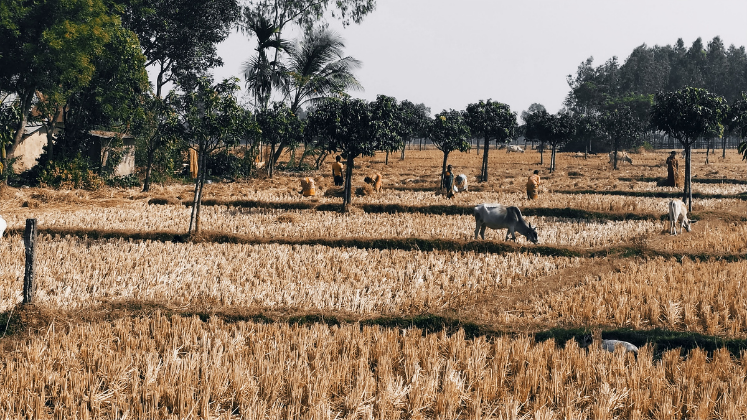
Photo by Ritanuka Ghosh on Unsplash
Q: West Bengal holds the record for the longest period of elected communist rule from 1977 to 2011. How did this 34-year experience influence the cultivation of democratic culture in the villages you studied?
If you were not a Communist Party/Left Front supporter, those 34 years were a test of patience and courage. During those years opposition parties had no hope of winning power and yet a most curious thing happened. Instead of giving up and withdrawing from elections, they continued to turn up and vote for their party even though they knew they would not win. As a result, when we disaggregate the data, we find that through these 34 years, opposition parties won almost 40 per cent of the vote share. This was real evidence that people recognised that in order to keep multi- party politics alive, they had to actively vote for opposition parties too. Each election reinforced their political loyalty and kept alive the possibility of change. It did finally come in 2011.
Q: Within the book, you draw frequently on the work of the social reformer (and LSE alumnus) B.R. Ambedkar, particularly his discussion of the relationship between the republic and democracy. What role did his ideas play in your study?
Ambedkar’s ideas were foundational. His insistence on defining India as both a democracy and republic forced me to confront the distinction between the two and led to the theoretical framing of my book. In some ways, my book is an exploration of Tocquevillian themes of democracy and democratic culture and Ambedkar, influenced by his favourite teacher John Dewey at Columbia University, was shaped by that kind of approach to democracy. He was also part of an intellectual heritage of liberal thought in India that argued against the anti-democratic nature of caste. In his role as Chair of the Drafting Committee of the Indian constitution, he was able to bring the force of these ideas to bear on the shaping of the new nation India that was defined as a sovereign democratic republic – to capture its aspiration not only to political democracy but also social and economic democracy (republic). Not many know this, but the decision to use both these words was Ambedkar’s.
I feel privileged to work in an institution that has the honour to count Ambedkar as an alumnus.
Q: Your study focuses on the experiences of two rural villages in West Bengal between 1998 and 2013. What were the challenges and rewards of undertaking fieldwork over a 15-year period?
I never had a sabbatical year or much time off to do fieldwork for this project; I utilised university vacations for these. But I also wanted to have witnessed every major festival and event and that took some planning as Islamic festivals follow the lunar calendar and do not conform in any way to UK university schedules! Fortunately, elections are usually held in May or June and it was easier to be there for them or at least for the campaign period before it during the university’s Easter break. So, to start with, the extended time period of doing fieldwork was really because I needed each year to cover one more event that I had not yet witnessed. But then I began to notice other changes between visits, such as changing practices of Islam, the slowing down of the Green Revolution in agriculture as the water tables dropped and, most astonishingly, the slow erosion of support for the Left Front. I soon realised that the necessity of doing fieldwork over many years had turned into a huge advantage as very few studies such as mine, that can chart big changes through anthropological fieldwork, exist.
Q: How did the COVID-19 context shape the writing of your book?
I had two rather demanding roles at LSE before the pandemic – I was both an academic in the Anthropology department as well as the inaugural Director of the South Asia Centre. It was like doing two full-time jobs which meant that there was very little spare capacity. Lockdown felt like I had been allowed to get off the rollercoaster and think and read and write again. It was wonderful and I will always cherish the surreal space and time of those early months of the pandemic when this book was completed. It is definitely a better book for it. I want to qualify that by saying that I recognise what an incredible privilege that was, especially as so many people suffered so much at that time.
Q: In inviting us to consider democracy not as a ‘thing’ but as an activity that we cultivate together as citizens, how might your book help us to better understand and address the democratic crises that we are witnessing today?
A large part of the reason for the current fall in democratic standards in so many societies today is a smug complacency. We were complacent because we thought that a few institutions would guarantee democracy forever and we did not pay enough attention to their steady erosion. And yet electoral procedures were being corrupted, officials were becoming increasingly partisan, parliamentary norms were violated, truth was suppressed, the media got away with spreading untruths – and we did not really worry because we thought our countries still ‘looked’ like democracies (they had elections, parliaments and no official censorship). So we assumed they were still democracies.
But as I argue in the book, democracies need vigilance. To be democratic is as much about creating democratic cultures, of living together with others in accommodation, fairness and dialogue. Thus, every single citizen living in a democracy needs to be constantly on guard about the quality of democratic freedoms in their society, each needs to hold elected representatives to account in between elections and be watchful that institutions don’t get corrupted. This combination of watchfulness, care, commitment and ultimately hope is what cultivating democracy is about.
Note: This interview gives the views of the author, and not the position of the LSE Review of Books blog, or of the London School of Economics and Political Science. The interview was conducted by Dr Rosemary Deller, Managing Editor of the LSE Review of Books blog. The LSE RB blog may receive a small commission if you choose to make a purchase through the above Amazon affiliate link. This is entirely independent of the coverage of the book on LSE Review of Books.
Banner Image Credit: Photo by Piyal Pakira on Unsplash.



